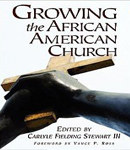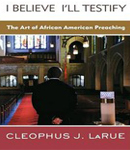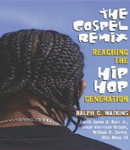Lectionary Commentaries

EVANGELISM SUNDAY
LECTIONARY COMMENTARY
Sunday, August 18, 2013
John R. Faison, Sr., Lectionary Team Commentator
Senior Pastor, Watson Grove Missionary Baptist Church, Nashville, TN
Lection – Romans 10:9-12 (New Revised Standard Version)
(v. 9) Because if you confess with your lips that Jesus is Lord and believe in your heart that God raised Him from the dead, you will be saved. (v. 10) For one believes with the heart and so is justified, and one confesses with the mouth and so is saved. (v. 11) The scripture says, "No one who believes in Him will be put to shame." (v. 12) For there is no distinction between Jew and Greek; the same Lord is Lord of all and is generous to all who call on Him.
I. Description of the Liturgical Moment
Evangelism Sunday is a worship moment for Christians to invite their families, friends, neighbors, professional acquaintances, social acquaintances, and even strangers into a personal relationship with Jesus Christ. This moment revolves around the sharing of one's unique God-encounter, often through a medium that is firmly rooted in the DNA of African Americans: the medium of story. African American Christians have long valued "telling the story," as our faith is deeply rooted in the oral tradition.1 Evangelism Sunday is an opportunity to rekindle this faith expression.
Evangelism hinges upon the premise that those who have experienced God's grace in Christ are compelled to extend to others an invitation to the same. The intrinsic, God-given value in all humanity is revealed to those who are in relationship with God, so that we might give His Gospel to humanity with the intensity with which it was given to us. So essential is this task of divine representation that God would not leave us to perform it in our own strength. Jesus promised, "But you will receive power when the Holy Spirit has come upon you; and you will be my witnesses..."2 Therefore, an indication of the Spirit at work in us is how well we share this Good News.
II. Biblical Interpretation for Preaching and Worship: Romans 10:9-12
Part One: The Contemporary Contexts of the Interpreter
I grew up in church. Some would say I was "born on a pew." By age 14, I knew almost everything about the Black Church—from the syncopated singing of the choirs, to the creatively crafted whooping of its preachers, to the backroom board meetings of the self-installed powers that be. I had even found my place. I was leading choir solos, giving Easter speeches, and occasionally teaching children's Sunday school. I knew church; I did not know Christ.
One Saturday night, I attended a youth retreat in Lynchburg, Virginia. The retreat's Youth Director, Dr. John Guns (now Senior Pastor of St. Paul Church of Jacksonville, FL), preached that night. For the first time in my life, I heard the gospel in a way I completely understood and could apply to my life immediately. It changed me forever. The impact of that moment compelled me to accept Christ as my Savior. I had been exposed to the Word before, but that night I was evangelized.
Any effective evangelism effort will powerfully convey the gospel in a manner that hearers can understand and apply to their own context. Sometimes it is done through sermons. Most often, it is done through deeds followed by relationships being built that include a great deal of dialogue or conversations.
Part Two: Biblical Commentary
Paul's letter to the Romans was written to introduce him to them theologically. This was absolutely necessary, as he had not established this church nor visited them previously.3 As a result, Paul uses a systematic approach to convey the important themes of the Christian faith.
The theme of this passage is clearly articulated by Paul as salvation. Paul chooses to highlight the universality of salvation. His premise is that salvation is available to anyone based upon faith alone in Jesus Christ, not works or nationality. Though outside of the scope of our passage, it is important to note how Paul concludes this statement in verse 13, For “everyone who calls on the name of Lord shall be saved.” This distinction was made in order to refute claims of exclusivity between Jewish and Gentile Christians in the church at Rome.
Jews in Rome lived under the constant weight of the oppressive Roman Empire. That oppression in essence was doubled once these Jews became Christians, since oppression now came from the government and fellow Jews alike. The Gentile Christians in Rome also faced this brutal oppression because their newfound faith rebuffed such Greco-Roman cultural norms as deification of the emperor, sexual immorality, and idol worship. One would expect this commonality of experience to unite the Jewish and Gentile believers in the church at Rome. Instead, these similarities were overlooked as both sides searched for reasons to engage in conflict and controversy in order to make themselves superior to the other. It is to this messy ministry that Paul pens his "magnum opus" on the inclusiveness of salvation. The passage can be divided into three areas: v. 9, vv. 10-11, and v. 12.
Verse 9 examines the simplicity of salvation. The complete thought found in v. 9 actually begins in v. 8. In that verse, Paul asks, "But what does it say? 'Thy word is near you, on your lips and in your heart.'" He is referring to a passage in the Law (Deuteronomy 30:14), one that his hearers would already understand. Paul introduces the partnership between the "lips" and the "heart" in this way so that the parallels can be seen in the next verse. Then, in verse 9, he completes the thought by indicating how the simple continuation of this partnership leads to salvation: "confess with your lips that Jesus is Lord and believe in your heart that God raised Him from the dead, you will be saved." Notice the simplicity of our action in contrast to the complexity of God's action. We only have to confess and believe. Jesus had to endure the cross of Calvary so "every tongue should confess that [He] is Lord," and be resurrected from the dead to seal our salvation.4 This juxtaposition is an indication of how salvation is based upon His work, and not ours.
Verses 10-11 reveal the strength of salvation. In verse 10, Paul again uses the partnership of "heart" and "lips" (or mouths), showing how powerful this combination is for the believer. But he also alludes to another theme of Romans: justification. His premise is that salvation comes through faith; thus, it is a work of the heart. Yet, when that faith is embraced, what occurs in the heart has permanent, eternal consequences. The believer is no longer considered guilty of sin, but is placed in perpetual right-standing before God. (In the King James Version of verse 10, the word righteousness is used instead of "justified.") Verse 11 further shows salvation's strength in that it provides acceptance. Because of one's belief in the finished work of Christ, God will never reject that person. That person is automatically welcomed into the family of God, no strings attached.
Verse 12 explains the source of salvation. Following such an explicit statement of the grace seen in salvation, Paul chooses to reiterate from Whom this power comes. He writes, it comes from the "Lord." Then he describes the Lord in no uncertain terms: "The same Lord is Lord of all and is generous to all who call on Him." This is a vital designation, as Paul is writing to many hearers who believe that they have exclusive rights to God. Paul wants to establish, for once and for all, that God loves and accepts everyone who comes to Him. As a result, there is no preferential treatment, no implied distinction, and no special rewards program for any certain group. Whether Jew or Greek, to the utmost Jesus saves!
This poignant message of the availability of salvation is just as applicable today as it was at the time this text was penned. Little has been more damaging to the African American community at-large than our cruel attempts to divide and disqualify people from God's love. We have created all kinds of reasons: gender, race, origin, sexual orientation, socioeconomic level, education, doctrine, past mistakes, and the list continues. We must be honest about our efforts of exclusivity and see them for what they are: a misrepresentation of God. God's salvation knows no bounds. Who better to share that truth than those who have been redeemed themselves? Again, sometimes this is done through sermons. Most often, it is done through deeds followed by relationships, and then conversation.
Celebration
This text gives us a definite reason to celebrate. When humanity, like the church at Rome, is debating whether or not we deserve the option of salvation, God is there to say, YES! Even when earthly voices declare us unworthy of God's gracious gift of salvation, God is eternally there, saying, YES, you are worthy! And God specializes in correcting man-made messes. In fact, that was crux of what Christ was about.
In Jesus Christ, God placed a comma where man had placed a period. And our Creator is still correcting today, right now. Our God is willing to bypass those who think they speak for Him and reach out to those who are seeking Him. There is nothing we could do to earn God's love, so there is nothing we can do to lose it. It does not matter what we have done, where we have been, or how we got there. The truth of the text is just as plain as it is powerful. If we confess with our mouths and believe with our hearts, we shall be saved!
Descriptive Details
The descriptive details of this passage include:
Sounds: The weeping of a penitent person while mumbling the words "Jesus is Lord"; the beating of one's heartbeat (v. 9); the praise being offered by a family as their loved one embraces Christ (v. 12); the sounds of people calling on the name of the Lord is several languages (v. 13);
Sights: The smile of the Christian who has shared the gospel and watched another embrace salvation (v. 10); the smiling, tear-stained face of a man or woman who thought he or she was too far gone after being saved (v. 11);
Smells: The smell of marijuana at the altar as a young man leaves his old life to follow Christ (v. 13); the smell of the city (exhaust, the sewage drains, garbage) as changed people share the gospel in their community.
III. Other Material That Preachers and Others Can Use
The following resources may prove useful as you prepare to address evangelism in the sermonic moment. May you find them useful, but always keep in mind the particular needs of the congregation with whom you will share.
Forever Stamps
Long before the days of tweets and text messages, people mailed letters. In order to do this, they needed stamps. I remember when a stamp cost $.25. However, because of inflation, the price has increased every few years. Stamps went from $.25 to $.29, then to $.32. Now in 2013, a stamp costs $.46. But in February 2007, the US Postal Service started creating Forever Stamps. Forever Stamps allow you to pay one price, once and for all, regardless of future increases in the price of stamps. The best thing about these Forever Stamps is that they never lose their power. They will always get your letter where it needs to go.
Salvation is nothing more than God's Forever Stamp. Sin costs. And the price goes higher the more we rebel against God. But knowing that we could not handle the price, God sent His Son, Jesus, to pay our debt, once and for all. Now regardless of how high the price of our sin gets, we do not have to handle the increase. Jesus' blood bought our Forever Stamp. And it will never lose its power!
—John Faison, Sr.
Books
|
June, Lee N. and Matthew Parker, eds. Evangelism & Discipleship in African-American Churches. Grand Rapids, MI: Zondervan, 1999. |
|
Stewart, III, Carlyle Fielding, ed. Growing the African American Church. Nashville, TN: Abingdon Press, 2006. |
|
LaRue, Cleophus J. I Believe I'll Testify: The Art of African American Preaching. Louisville, KY: Westminster John Knox Press, 2011. |
|
Watkins, Ralph C., et al. The Gospel Remix: Reaching the Hip Hop Generation. Valley Forge, PA: Judson Press, 2007. |
|
Kinnaman, David. You Lost Me: Why Young Christians Are Leaving Church...And Rethinking Faith. Grand Rapids, MI: Baker Publishing, 2011. |
Articles
- "Church Evangelism: More Churches Turning to Social Media." Huffington Post. Online location: http://www.huffingtonpost.com/2012/04/24/churches-social-media_n_1447415.html (accessed May 1, 2013).
- "Religious Evangelists Spread Faith Through Social Media." Pbs.org. Online location: http://www.pbs.org/mediashift/2009/06/religious-evangelists-spread-faith-through-social-media155 (accessed May 2, 2013).
- "Major Faith Shifts Evident Among Whites, Blacks, and Hispanics Since 1991." Barna Group. Online location: http://www.barna.org/faith-spirituality/510-major-faith-shifts-evident-among-whites-blacks-and-hispanics-since-1991?q=evangelism (accessed April 29, 2013).
Notes
1. James O. Stallings. Telling the Story: Evangelism in Black Churches (Valley Forge, PA: Judson Press, 1988), 15.
2. Acts 1:8.
3. Thomas L. Hoyt, Jr., "Romans," True to Our Native Land: An African American New Testament Commentary, ed. Brian K. Blount (Minneapolis, MN: Fortress Press, 2007), 249.
4. Philippians 2:11.








